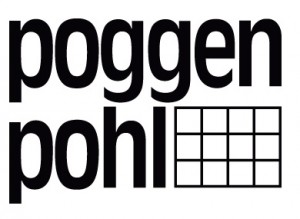2017 is still here but we can already start with a year-end review. And what a year this has been, for some of the largest and most known German companies.
Starting with Alno – As we reported back in July, the Alno group has finally filed for liquidation in September. Industry experts tried to find investors, to save the company, but with no luck…
The Alno Group had 4 brands and factories, towards the end (there were several others through the years) –
The Alno brand and the main factory in southern Germany – produced good quality kitchens, at a medium price – closed for good. Property and equipment is being liquidated.
The Wellmann brand, with a factory in northern Germany – purchased by Alno some years back produced lower price point kitchens – closed for good. Property and equipment is being liquidated.
The Pino brand, with a factory in eastern Germany – produced flat pack (knock down, RTA) cabinets, aimed at the budget kitchen market – sold to Nobilia. Production is scheduled to start again in December.
The Forster brand, a Swiss company purchased some years back, by the Alno Group – producing metal cabinets – sold to Max Müller, the former CEO of Alno, who is Swiss himself.
All that is left, at this point is the Alno name, but with all the negative that has happen to them in recent years, the image is just not too good and there are no buyers for the brand name.

Next was SieMatic – just last month, the privately owned German kitchen brand announced the sale of the majority of the shares to the Chinese home appliance supplier Nison Group.
Shareholders Ulrich W Siekmann and Kathrin André will remain as minority shareholders. SieMatic sales turnover has been decreasing for years. Since they are privately owned, the sales can only be estimated and are now near €100 million. The hope is to speed up growth and the obvious focus will be the Chinese market, where the company recently gained market share, to become their 6th largest sales market.
The management team headed by Ulrich W Siekmann and Silvia Weppler will stay with the company and will be responsible for international brand management from its present headquarters in Löhne, Germany.

Then was Poggenpohl… In the first quarter of 2017, the Swedish Nobia Group sold its shares of the Poggenpohl brand, to the Munich based industrial holding group Adcuram, for… €10 million…
As reported by KBB Review – Darren Taylor, managing director of Winchester-based retailer Searle & Taylor, claimed the sale could see a return to form for the troubled brand.
“While I always believed it would be very difficult for the Nobia Group to find a partner investor, I was surprised that the Poggenpohl brand was sold outright for such a limited sum, and to a private equity firm with excellent experience in building, self-building and related businesses, but not necessarily in kitchens,” he said.
“Having read the press release, there are some lines that stand out: ‘investment into the brand’s positioning, the expansion of the product portfolio, support for retail partners and the Poggenpohl operated stores and optimization of the production process’. I for one, genuinely hope that these strategies are implemented immediately, as it would be great to see Poggenpohl return to its place as the number one luxury kitchen brand in the not too distant future.”
Another retailer, who wished to remain anonymous, commented: “It’s interesting but not surprising that Nobia have dumped Poggenpohl. It was never their thing as Nobia are about low/mid market and big volume. I guess the thinking originally was that owning Poggenpohl would bring some high-end credibility to the group but in the end the cost of this proved more than they wanted to bear.
“So, there were no takers when they tried to offload Poggenpohl. A premium brand company making a loss and an investment business is taking it on? I wonder if Poggenpohl will now end up yet another high-end brand, selling a run of the mill product at a premium. It should allow the new owners a decent return on investment for a few years after which the name will be played out.
Now, for some good news – as these giants (or formerly known as such) are closing doors, losing market share or changing hands, other brands, that have are gaining that business. Nobilia, who was the first kitchen brand to break the €1 billion annual turnover, has purchased the Pino factory from the bankrupt Alno and will most likely gain some of that lost market share. Other brands that are likely to gain Alno’s past business are Nolte, Häcker, Bauformat and Schüller – all able to compete at the low-to-mid priced market. Häcker has already reported sales of €512 million, vs. €466 million last year and are in the process of building a new factory, to handle the new found business.


This something very unique and helpful for me!! Thanks a lot. Everything explained in so simple way.